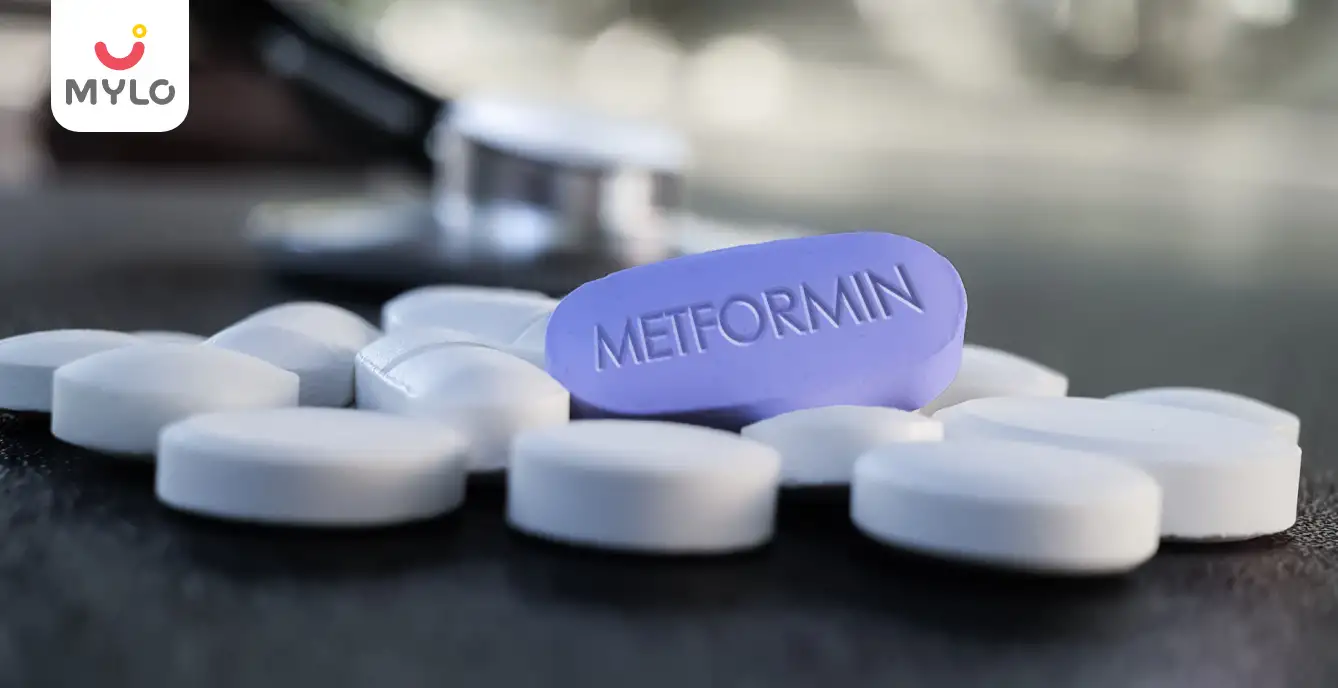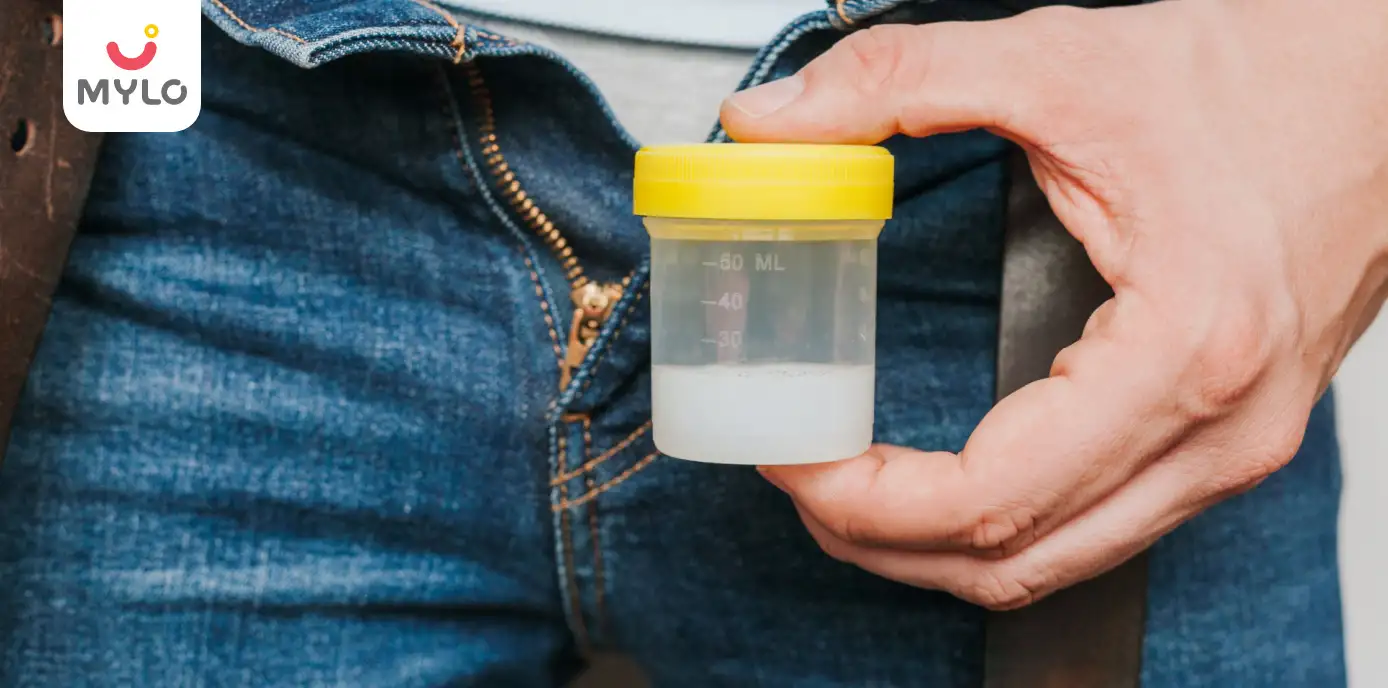Home

PCOS & PCOD

Inositol for PCOS: How This Supplement Can Help Regulate Your Hormones
In this Article

PCOS & PCOD
Inositol for PCOS: How This Supplement Can Help Regulate Your Hormones
Updated on 29 August 2023



Medically Reviewed by
Dr. Shruti Tanwar
C-section & gynae problems - MBBS| MS (OBS & Gynae)
View Profile

Living with Polycystic Ovary Syndrome (PCOS) can be challenging, as the hormonal imbalance it causes can lead to a wide range of distressing symptoms. From irregular periods and acne to weight gain and fertility issues, PCOS can significantly impact a woman's quality of life. While there is no cure for PCOS, there are ways to manage its symptoms effectively, and one promising solution is the use of inositol for PCOS.
Join us as we delve into the science behind inositol, understand its mechanisms of action, and uncover the ways in which it can restore hormonal balance. Discover why this supplement has gained traction as a promising alternative for PCOS management and how it can potentially transform the lives of women struggling with this condition.
What is Inositol and How Does It Work?
Inositol, often referred to as vitamin B8, is a type of sugar alcohol that is naturally present in many foods and is also produced by the human body. It plays a crucial role in various cellular functions and acts as a secondary messenger in the insulin signaling pathway.
In women with PCOS, there is often an imbalance in insulin signaling, leading to insulin resistance and abnormal hormone levels. Inositol helps to improve insulin sensitivity, regulate menstrual cycles, and restore hormonal balance.
You may like : Metformin for PCOS: How This Medication Can Help Regulate Hormonal Imbalances
What are the Different Types of Inositol?
There are two primary types of inositol that have been extensively studied for their effects on PCOS:
1. Myo Inositol
Myo inositol is the most abundant form of inositol found in the body. It has been shown to improve insulin sensitivity, lower androgen levels, and regulate menstrual cycles. It is often used as a standalone supplement or in combination with other nutrients to manage the symptoms of PCOS.
2. D-Chiro Inositol
D-chiro inositol is another form of inositol that is less abundant in the body but equally important. It works synergistically with myo inositol to improve insulin signaling and reduce insulin resistance. Studies have shown that a combination of myo and d-chiro inositol can be more effective in managing PCOS symptoms compared to using either type alone.
What are the Benefits of Inositol for PCOS?
Let us explore the benefits this supplement can provide to women struggling with PCOS:
1. Regulates Menstrual Cycles
Inositol helps to restore regular ovulation and normalize menstrual cycles in women with PCOS.
2. Improves Insulin Sensitivity
By enhancing insulin signaling, inositol reduces insulin resistance and improves glucose metabolism.
3. Reduces Androgen Levels
High levels of androgens, such as testosterone, are often seen in women with PCOS and can lead to acne, excessive hair growth, and hair loss. Inositol helps to lower androgen levels and improve these symptoms.
4. Enhances Fertility
Inositol has been shown to improve the quality of eggs and increase the chances of pregnancy in women with PCOS.
5. Reduces Risk of Gestational Diabetes
Women with PCOS have a higher risk of developing gestational diabetes during pregnancy. Inositol supplementation has been found to lower this risk.
6. Supports Weight Loss
Inositol helps to regulate appetite, reduce cravings, and support healthy weight management in women with PCOS.
7. Improves Mood and Depression
PCOS is often associated with mood disorders such as depression and anxiety. Inositol has shown promising results in improving mood and reducing symptoms of depression in women with PCOS.
If you’re considering adding Inositol tablets to your PCOS arsenal, you can also try Mylo’s chewable Myo-inositol tablets. Enriched with quatrefolic and vitamin D, these internationally certified tablets help to restore and maintain hormonal balance, regulate menstrual cycle, control insulin resistance, improve fertility, aid in weight management and combat acne.
Inositol Tablets vs Inositol-Rich Foods: Which is Better?
Inositol is available in supplement form as tablets or powders, making it convenient for daily consumption. However, it is also naturally present in various foods, especially fruits, grains, and nuts. While inositol supplements can provide a concentrated dose, incorporating inositol rich foods into your diet can offer additional health benefits.
How to Take Inositol Tablets?
When taking inositol supplements, it is essential to follow the recommended dosage instructions provided by the manufacturer or as advised by your healthcare professional. Inositol can be taken with or without food, depending on personal preference. It is generally well-tolerated, but some individuals may experience mild side effects such as gastrointestinal discomfort. If any adverse reactions occur, it is advisable to discontinue use and consult a healthcare professional.
What are the Best Inositol Foods?
Here are some foods naturally rich in inositol:
1. Oranges
Oranges are not only a delicious source of vitamin C but also contain a significant amount of inositol.
2. Beans
Various types of beans, such as chickpeas, lentils, and kidney beans, are rich in inositol and provide a good source of plant-based protein.
3. Brown Rice
Brown rice is not only a healthy carbohydrate option but also contains inositol and other essential nutrients.
4. Nuts and Seeds
Almonds, walnuts, flaxseeds, and chia seeds are excellent sources of inositol and healthy fats.
5. Whole Grains
Whole wheat, oats, and quinoa are whole grains that contain inositol and provide a good source of dietary fiber.
You may also like : PCOD Diet: How the Right Diet Can Transform Your Life
Precautions to Keep in Mind While Taking Inositol for PCOS
Here are some precautions you should keep in mind while taking inositol foods or tablets:
1. Consult a Healthcare Professional
It is important to consult with a healthcare professional before starting any new supplements or making changes to your PCOS management plan.
2. Monitor Blood Sugar Levels
Inositol may have an impact on blood sugar levels, so it is essential to monitor your levels regularly, especially if you have diabetes or are at risk of developing diabetes.
3. Consider Allergies or Sensitivities
If you have known allergies or sensitivities to certain foods or supplements, it is crucial to check the ingredients and potential allergens in inositol products.
4. Pregnancy and Breastfeeding
If you are pregnant, breastfeeding, or planning to become pregnant, it is important to discuss the use of inositol with your healthcare professional.
5. Quality and Safety
When purchasing inositol supplements, it is important to choose a reputable brand that meets quality and safety standards.
Final Thoughts
The use of inositol for PCOS has shown promising results in regulating hormones and managing the symptoms. It can help restore menstrual regularity, improve insulin sensitivity, reduce androgen levels, enhance fertility, and support overall well-being. Whether through inositol supplements or inositol-rich foods, incorporating this valuable compound into your PCOS management plan may provide significant benefits. However, it is important to consult with a healthcare professional to determine the right approach for your individual needs.
References
1. Kalra B, Kalra S, Sharma JB. (2016). The inositols and polycystic ovary syndrome. Indian J Endocrinol Metab.
2. Roseff S, Montenegro M. (2020). Inositol Treatment for PCOS Should Be Science-Based and Not Arbitrary. Int J Endocrinol.
3. Kamenov Z, Gateva A. (2020). Inositols in PCOS. Molecules.





Medically Reviewed by
Dr. Shruti Tanwar
C-section & gynae problems - MBBS| MS (OBS & Gynae)
View Profile


Written by
Anupama Chadha
Anupama Chadha, born and raised in Delhi is a content writer who has written extensively for industries such as HR, Healthcare, Finance, Retail and Tech.
Read MoreGet baby's diet chart, and growth tips

Related Articles
Top 100 Baby Names for Boys and Girls 2026 Edition: The Ultimate Trending & Meaningful Name Guide
The Ultimate Guide to the Best Romantic Web Series on OTT for Couples
Best Indian Crime Web Series Based on True Stories: The Ultimate Binge-Watch Guide (2026)
Dark & Suspenseful OTT Shows You Can’t Stop Watching: The 2026 Binge List
Related Questions
Hello frnds..still no pain...doctor said head fix nhi hua hai..bt vagina me pain hai aur back pain bhi... anyone having same issues??

Kon kon c chije aisi hai jo pregnancy mei gas acidity jalan karti hain... Koi btayega plz bcz mujhe aksar khane ke baad hi samagh aata hai ki is chij se gas acidity jalan ho gyi hai. Please share your knowledge

I am 13 week pregnancy. Anyone having Storione-xt tablet. It better to have morning or night ???

Hlo to be moms....i hv a query...in my 9.5 wk i feel body joint pain like in ankle, knee, wrist, shoulder, toes....pain intensity is high...i cnt sleep....what should i do pls help....cn i cosult my doc.

Influenza and boostrix injection kisiko laga hai kya 8 month pregnancy me and q lagta hai ye plz reply me

RECENTLY PUBLISHED ARTICLES
our most recent articles

PCOS & PCOD
Metformin for PCOS: How This Medication Can Help Regulate Hormonal Imbalances

Conception
5 Tips on How to Get Pregnant When You Are Fat

Medications
Do Antibiotics Affect Fertility: Debunking Common Myths and Misconceptions

Fertility
Disadvantages of Releasing Sperm Daily: Debunking Common Myths

Medical Procedures
Varicocele Surgery Cost: What You Need to Know Before You Go Under the Knife

Male Infertility
Testicular Pain: Don't Ignore, Know When to Seek Medical Attention
- PCOS with Regular Periods: Understanding the Symptoms and Implications
- Bulky Uterus: What You Need to Know About this Common Gynecological Issue
- Mylo Baby Wipes Review
- PCOS Treatment in Ayurveda: The Ultimate Guide to Natural Treatment Options
- PCOS Acne: The Ultimate Guide to Causes, Treatment and Management
- Maggi in Pregnancy: Is It Safe to Enjoy Your Favorite Instant Noodles?
- Oats During Pregnancy: A Winning Combination for Both Mom and Baby
- Types of IVF, Their Benefits and Side Effects Everything You Need to Know..
- How to Sterilize Baby Bottles: The Ultimate Step-by-Step Tutorial
- What to eat when trying to conceive
- White Discharge After IUI: Is It Normal & When to See a Doctor
- Diet & Exercises Your Wife Can Follow During Pregnancy
- Can a diet plan help deal with infertility in women and boost the chances of conception?
- How to Sterilize Breast Pump: A Comprehensive Guide for New Moms


AWARDS AND RECOGNITION

Mylo wins Forbes D2C Disruptor award

Mylo wins The Economic Times Promising Brands 2022
AS SEEN IN

- Mylo Care: Effective and science-backed personal care and wellness solutions for a joyful you.
- Mylo Baby: Science-backed, gentle and effective personal care & hygiene range for your little one.
- Mylo Community: Trusted and empathetic community of 10mn+ parents and experts.
Product Categories
baby carrier | baby soap | baby wipes | stretch marks cream | baby cream | baby shampoo | baby massage oil | baby hair oil | stretch marks oil | baby body wash | baby powder | baby lotion | diaper rash cream | newborn diapers | teether | baby kajal | baby diapers | cloth diapers |




